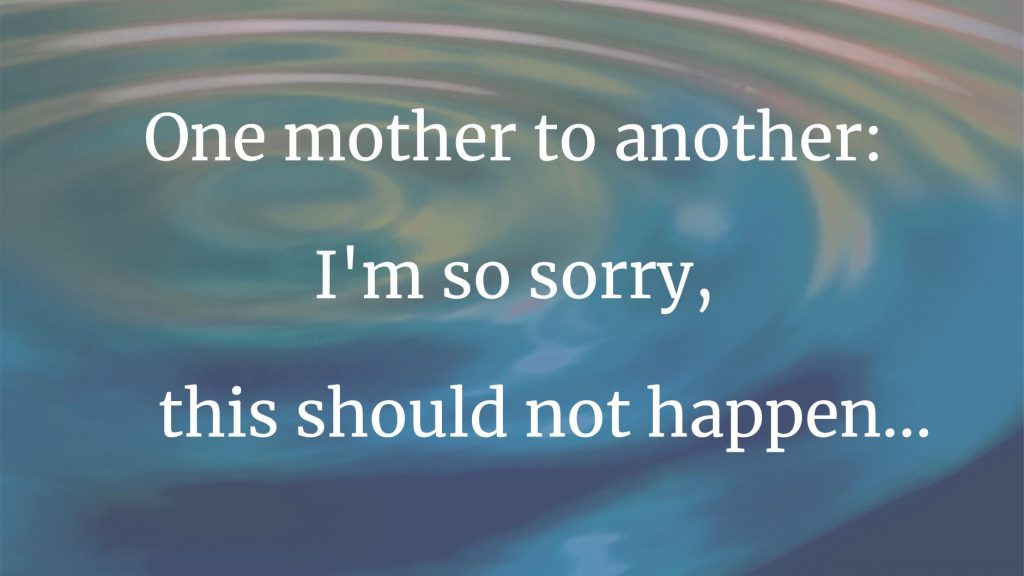I can’t stop thinking about you.
Last night, at about midnight, the phone aroused me from my happy slumber. It was Vance, the on-call resident, needing advice from me, as the supervising physician, on how to help a worried mother—you—who’d called our family health center’s after-hours service about your daughter’s worsening asthma.
You described an escalating turn of events: First, the inhalers weren’t enough to quiet your daughter Rosie’s wheezing. Next, the nebulizers could not ease the work of breathing: Rosie had to use her neck, abdominal and chest muscles to help expand her lungs and then to squeeze out every possible bit of air, to make room for the next inhalation.
“She knew this was going to happen,” Vance told me. “The weather’s turned cold—and the combination of cold temperatures, forced-air heat and rodents in the apartment always causes an asthma exacerbation. She thinks she needs to bring her daughter to the emergency room.”
Propping myself up in bed to avoid drifting back to sleep, I discussed the details with Vance; we agreed that Rosie needed medical support. Once Vance had called you to say to bring Rosie to the ER, I hung up the phone and fell back to sleep.
Waking up this morning, though, I felt unsettled and upset.
The phone call had hit too close to home.
My teenage child Robin has asthma. I know how it feels to watch a beloved child struggle to take a breath—to hear each wheeze and see the respiratory muscles pulling hard to do the work of breathing. I’ve lived through the interminable waiting and wondering about how this asthma flare will play out: Will the albuterol break it, or is it time for the emergency room?
I can predict the pattern of events in those situations. When Robin, as a young child, couldn’t breathe well, despite my administering various medications, I would call our family physician’s practice to say that I was bringing Robin to the ER. Then, after speaking with the on-call doctor, I would cry while packing our things.
Some moments are imprinted indelibly in my memory. I will never forget rushing to my car in our driveway, my child in my arms, wrapped tightly in a blanket, their soft voice panting, “Mama…I…can’t…breathe….”
All too easily, I can conjure up what it’s like to present myself at the ER, feeling like my child’s respiratory distress should be the center of their universe, but having to wait for instructions from the ER receptionist, who, in her post as gatekeeper, seems to hold my child’s fate in her hands.
As a white woman of privilege, what I don’t know firsthand is the feeling of frustration with a broken public-housing system, or feeling powerless to give my child an allergen-free home, no matter how much I scrub and vacuum and dust and wipe and spray and disinfect and deodorize.
And so I can’t stop thinking about you, in your apartment with the rats and the forced heat. I can’t stop wondering how your daughter and you are doing. I wish I could ask you these questions:
“How long did you debate, staring at your phone and worrying about bothering the doctor in the middle of the night, before you decided to call?”
“After you left your message, did waiting for the doctor to return your call feel like an eternity?”
“When you were anticipating the cold snap, did you feel a sense of foreboding, knowing that frigid temperatures and forced-air heating would trigger Rosie’s asthma?”
Thinking about your situation, I feel furious that structural racism and inequities have prevented you from getting safe housing for you and your family. The road to healthy housing is paved with obstacles: redlining, a dearth of affordable housing, a housing system that is not at all family-centric.
I recall the countless times I’ve written a letter on a patient’s behalf, stating: “It is medically necessary for [Patient Name] to have housing free of cockroaches, mice, rats, and cigarette smoke coming from the vents of other apartments.”
Even as I wrote, a voice inside was saying, Medically necessary? It is HUMANLY necessary!
Writing this letter for people who live in a country as wealthy as the United States feels surreal. And yet I expect that I’ll need to write this very letter many, many more times.
On our state’s website, the public-housing section reads: “Cockroaches and Rodents: The landlord must maintain the unit free from rodents, cockroaches, and insect infestation, if there are two or more apartments in the building.”
I want to ask you: “How long have you been on a housing list trying to find a home free of vermin? How many letters has your doctor written to help you find rodent-free housing? How many hours have you spent on hold with the housing office? How many transfers from one representative to the next have you endured, pleading your case to each one in turn, hoping that this person will be the one who can assist you?”
I know that Rosie’s asthma flare and hospitalization were preventable—that they probably wouldn’t have happened, if you were able to give your child the same advantages that I’ve given mine. That simple fact breaks my heart and crushes my soul. As terrifying as my child’s asthma has been, my privilege has afforded Robin a milder course of illness than your daughter has suffered. And I see how structural racism has played an integral role in that difference.
The following morning, Vance texts: “The patient was admitted. She received steroids and magnesium and nebulizers. Good thing she went to the hospital.”
Yes, this is true. But I know that the worry, stress and disruption of your and Rosie’s lives, plus the physical toll of this chronic illness on Rosie, will linger on long after she’s back home.
And so will my sadness and frustration at this terrible unfairness that’s so entrenched in our society and that causes terrible harm to so many people who deserve better.









8 thoughts on “Dear Worried Mother”
I SO enjoy your writing and your insights. You bring an important and valuable voice to the table and always do an excellent job of speaking out on behalf of your patients. Many thanks
Lisa
Beautifully written (as always), thank you for sharing your own feelings of vulnerability around your child’s illness, how that made this patient’s case resonate for you, and your recognition of the inequities between your situation and hers. You are making the world better every day!
Thank you for writing from several points of view: doctor, mother, and white woman of privilege.
How can we equalize the playing field in health care?
I can’t imagine the anger and helplessness of this mother.
We should all lose sleep at night.
Bravo Dr Adelstein! I couldn’t agree more with your beautifully and sensitively written piece. Thank you!
Warmly, and in solidarity,
Lisa Dobberteen MD
pediatrician in Cambridge MA
Dear Dr. Adelstein,
Many thanks for your moving and insightful essay. The contrast between the two mothers is so important!
I also find myself hoping that Vance was aware of the social determinants at work here, and you found some fulcrums for teaching.
Fine work!
Thank you for recognizing the plight oof people who are poor, and especially people of color who can not find work to support themselves in a healthy way.
The problem seems insurmountable, thought a national focus and problem solving could make a major difference, and I don’t see that on the horizon.
Pamela-
Thank you for realizing that so many of childrens’ healthcare problems in this country are caused by the
fact that the poor and the rich do not get the same care.
This is because we are the only nation in the industrialized world that has a for-profit health care system that lets doctors, hospitals and drug-makers set their own prices.
In most countries in the industrialized world, govt regulates health-care prices.
This doesn’t mean that healthcare is run by the govt. in those countries–just pricing.
In all of those countries, specialists in private practice and so-called “non-profit hospitals” cannot charge whatever they wish, and in most cases, poor children and wealthier children have access to the same care.
What is interesting is that, when govt regulates & caps
healthcare prices, care is not worse.
In fact, in most of those countries healthcare is, on average, as good, sometimes better than in the U.S.
This is what U.S. medical journals tell us.
See “Money-Driven Medicine: The Real Reason Healthcare in the U.S. Is So Expensive.”
My heart breaks after reading your essay. How painful to watch innocent people suffer because they were dealt an unfair hand. Painful to treat symptoms that could have been easily avoided by providing people with safe places to live and breathe.